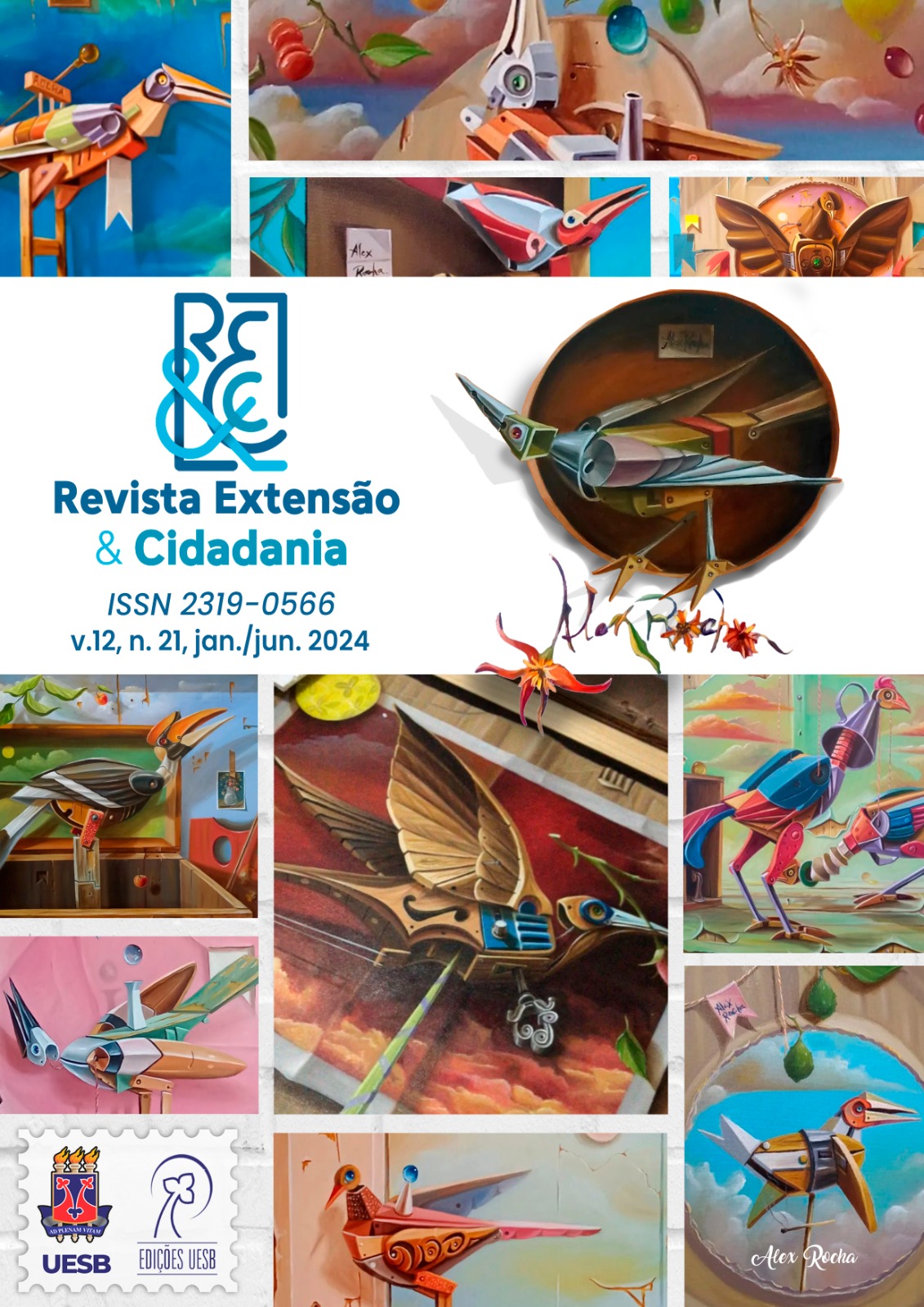Looking forward: reflections of two future-teachers on conversation practice at Communication Café
DOI:
https://doi.org/10.22481/recuesb.v12i21.14436Keywords:
Teachers in training, Conversation, Communication CaféAbstract
In this article, we will present and discuss some aspects linked to interactions in English observed during Communication Café meetings, which is an extension project at the Universidade Estadual do Sudoeste da Bahia – UESB. We will list and analyze aspects observed during the chats – type of interactions; level of participation-interaction; practices that helped the discussions – and we will establish a parallel between these and reflections that point to future perspectives (Looking forward) on how to democratize the learning of oral expression skills in English (Freire, 2004). According to research by the British Council (2014) and also according to Ahmadi and Leong (2017), the practice of oral expression skills in English receives little attention in many teaching contexts and, consequently, few people develop socio-communicative skills. As teachers in training and collaborators at Communication Café, we will reflect on this issue in order to problematize it and, possibly, interfere in discussions that seek ways to deal with the challenges linked to the practice of conversation. The Communication Café extension project aims to create an interactive space for practicing English conversation, from a collaborative learning perspective (Dewey, 1976). In this study, in order to analyze our experiences in the project, we will present excerpts from reflective diaries and notes. This study is in the area of studies on English teaching and learning, in particular, studies linked to the challenges of thinking about the place of
conversation practice in teaching contexts. This article should interest everyone who seeks to better understand the direction of a more holistic and humane education.
Downloads
References
AHMADI, S. M.; LEONG, L. M. An Analysis of Factors Influencing Learners' English Speaking Skill. International Journal of Research in English Education, Irã, v. 2, n. 1, mar. 2017. Disponível em: https://ijreeonline.com/article-1-38-en.pdf. Acesso em: 10 jan. 2024.
BRASIL. Ministério de Educação e Cultura. Lei de Diretrizes e bases para a Educação brasileira (LDB). Lei no 9.394, de 20 de dezembro de 1996. Estabelece as diretrizes e bases da educação nacional. Art. 1o A educação abrange os processos formativos que se desenvolvem na vida familiar, na convivência humana, no trabalho, nas instituições de ensino
e pesquisa, nos movimentos sociais e organizações da sociedade civil e nas manifestações culturais. Brasília, DF, 1996.
BRITISH COUNCIL. Learning English in Brazil: understanding the aims and expectations of the Brazilian emerging middle class. São Paulo: British Council Brasil, 2014. Disponivel em: https://www.teachingenglish.org.uk/sites/teacheng/files/pub_EstudoV13_EnglishInBrazil.pdf Acesso em: 10 jan. 2024.
CLANDININ, D. J.; CONNELLY, F. M. Narrative inquiry: experience and story in qualitative research. San Francisco: Wiley, 2000.
CRYSTAL, D. English as a global language. 2nd edition. New York: Cambridge University Press, 2003.
DEWEY, J. Experiência e educação. 2. ed. São Paulo: Companhia Editora Nacional, 1976.
FREIRE, P. Pedagogia da autonomia: saberes necessarios a pratica educativa. Sao Paulo: Paz e Terra, 2004.
KERBRAT-ORECCHIONI, K. Análise da conversação: princípios e métodos. São Paulo, Parábola, 2006.
RICHARDS, J. C.; RODGERS, T. S. Approaches and methods in language teaching. 2nd edition. Cambridge: Cambridge University Press, 2001.
Downloads
Published
How to Cite
Issue
Section
License
Copyright (c) 2024 Revista Extensão & Cidadania

This work is licensed under a Creative Commons Attribution 4.0 International License.






